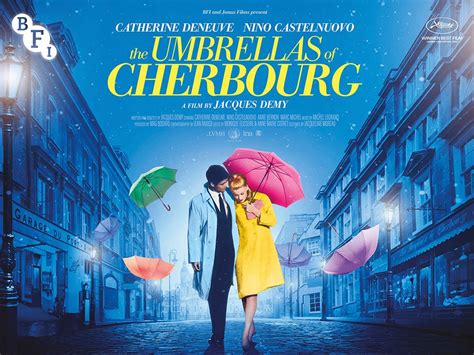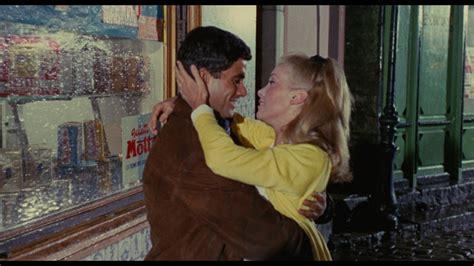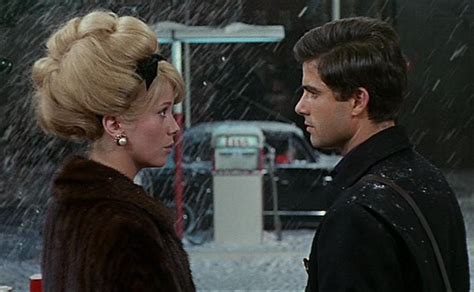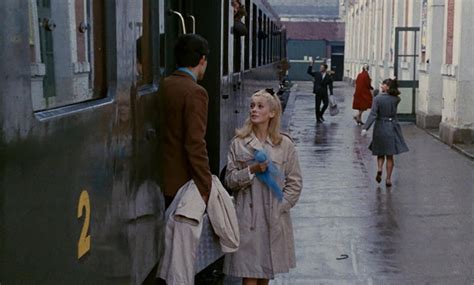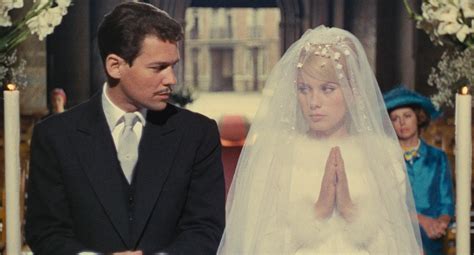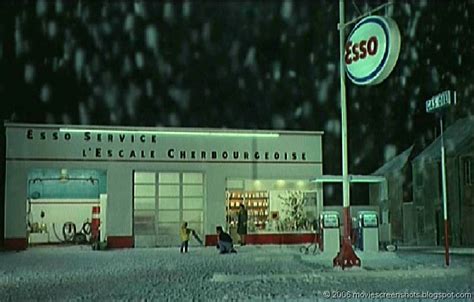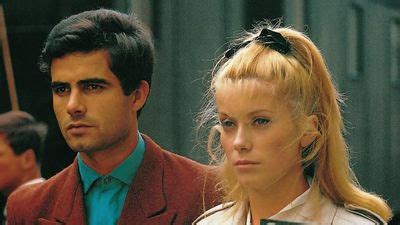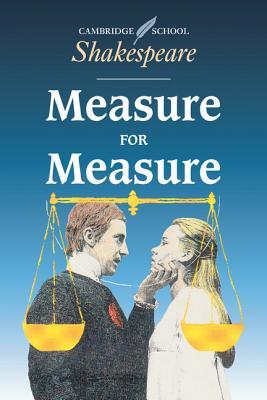|
home | what's new | other sites | contact | about |
||
|
Word Gems exploring self-realization, sacred personhood, and full humanity
Geneviève and Guy
Wikipedia: The Umbrellas of Cherbourg (French: Les Parapluies de Cherbourg) is a 1964 musical romantic drama film written and directed by Jacques Demy and starring Catherine Deneuve and Nino Castelnuovo. The music was composed by Michel Legrand. The film dialogue is entirely sung as recitative, including casual conversation, and is sung-through, or through-composed like some operas and stage musicals. Part One: The Departure (November 1957) Madame Emery and her beautiful 17-year-old daughter Geneviève have a tiny, struggling umbrella boutique in the coastal town of Cherbourg in Normandy, France. Guy is a handsome young auto mechanic who lives with and cares for his sickly aunt and godmother Elise. Though Geneviève's mother disapproves, Guy and Geneviève are deeply in love;
they plan to marry and name their first child Françoise. At the same time, Madeleine, a quiet young woman who looks after Guy's aunt, is secretly in love with Guy. Guy is drafted to serve in the Algerian War. The night before he leaves, he and Geneviève pledge their undying love and have sex, perhaps for the first time. Part Two: The Absence (January–April 1958) Geneviève learns she is pregnant and writes to Guy, but his replies are sporadic. Her mother tells her to give up on Guy – he has forgotten her. Geneviève is courted by Roland Cassard, a kind, young, very wealthy Parisian jeweler; he wants to marry her despite her pregnancy. In one of the connections among Demy's trilogy of films, Roland had previously unsuccessfully wooed the title character in the earlier Lola (1961); now he relates a version of this story to Madame Emery. Madame Emery urges Geneviève to be sensible and choose a secure future with Roland. Geneviève marries Roland in a great cathedral, but she appears ambivalent about her decision. Part Three: The Return (March 1959 – December 1963) Returning injured from the war, Guy learns that Geneviève has married and left Cherbourg. He has a difficult time readjusting to civilian life. After an argument with his boss he quits his job, goes drinking in a seedy bar, and spends the night with a prostitute. When he returns to his apartment, Madeleine tells him that his aunt Elise has died. Guy sees that Madeleine loves him, and he rebuilds his life with her help. Using the inheritance from his aunt he opens a new "American-style" gas station. Madeleine agrees to marry him, though she wonders whether he is merely on the rebound after losing Geneviève. Four years later, on a snowy Christmas Eve, Guy and Madeleine are in the office of their gas station with their small son François. Madeleine is decorating a Christmas tree. They appear a loving, happy family. As Madeleine and François leave to visit Santa Claus, an expensive car pulls in. The mink-clad driver is Geneviève, now wealthy and sophisticated. She has a young girl with her. As Guy rounds the car to Geneviève's window their eyes meet and there is a moment of awkwardness.
Guy invites Geneviève into the warmth of the station's office, where they chat as a boy attends to Geneviève's car. This is Geneviève's first time in Cherbourg since her marriage, she tells him; her mother died recently. Looking outside at the girl in the car, Guy asks, "What did you name her?" Geneviève answers, "Françoise. She's a lot like you. Do you want to see her?" Guy shakes his head. The car is ready. At the door Geneviève pauses and asks, "Are you doing well?" Guy replies, "Yes, very well." She opens the door and pulls her collar tight against the cold before looking back at Guy one last time. She walks to her car, gets in, and drives off. Madeleine returns with François, and Guy greets her with a kiss. As the camera pulls back, he frolics with his son in the snow, then picks him up and follows Madeleine inside.
Kairissi. It's interesting that each named their child a form of the same name - "Françoise" and "François." Elenchus. It's like the stories of separated, but still connected, biological twins who live their lives with an uncanny element of similarity. K. That part is attention-getting, but... I don't like this story, and I wish we didn't have to talk about it. E. Well, then, let's make it short. K. The only good thing is the theme music, “I Will Wait For You.” E. The author likes it so much that he’s collected 40 different versions of the song. K. It’s worthy of the attention. However, the song's title, too, only adds to what I dislike about this film. Waiting for each other is the one thing they didn’t do. E. Let’s offer a very brief recap of the plot, and then speak to one main point that the movie highlights – and it’s not something uplifting. K. I know what it is. Ellus, there are many vignettes in this “Perfect Mate” series, and quite a few show us what not to do, but the story of Geneviève and Guy takes us to new lows for John and Mary. In the “Last Kiss” movie, I said it might win a prize for worst picture, but at least the main characters were trying hard to make something work, and we have to give them that. But Geneviève and Guy feature an unseemly aspect of a disposable and easily discarded John-and-Mary love. E. They began well. They were so mad for each other, and they seemed like a natural couple; but then, as you say, they threw it all away; on a whim, yet. K. Guy was drafted for the Algerian War. He had to go away.
Before he left, they pledged with utmost fervency to wait for each other. E. The haunting theme music only heightens the sense of “I will wait for you no matter what and no matter how long it takes.” K. But then ensued a comedy of errors in which everything fell apart for them. As the author uses the phrase, “like a farcical dream in which nothing can be made to go right.” And she was so disgustingly fickle and endured only a few months for him. During the war, Guy was wounded and extremely preoccupied with just staying alive. Of course, with these pressing issues, he was not able to respond to her letters. But the prima-donna back home quickly interpreted the lack of mail as “He doesn’t love me.” What's wrong with this picture? - he’s at the war, getting shot at all day long, and she thinks it’s all about her. This feels so stupid to me. And how quickly she threw him away – and then marries another, someone she didn’t love.
E. But… didn’t we do something like that, too? K. (sighing) E. Let’s wrap this up and get to our main point. K. Each of them marries on the rebound. The new mates were good people, that wasn’t the problem; only that, nobody truly loved each other; not really. E. And when they met some years later, with Guy owning a gas station, it was clear, to both of them, that despite what had happened, and all that didn't, they still loved each other.
K. But here’s where the script-writer detours into unreality, attempting to craft a diseased wisdom. E. (silence) K. She drives away, leaving him at the gas station. Now, losing her again, he begins to play in the snow with his young son.
Playing with a child is good, and we need more of it, but the way it’s presented, following so closely after “the reunion,” is meant to send a message. E. Tell everyone of this message. it's second best, and ain't it great K. We are to celebrate “second best.” Second best, though inevitably leading to existential crisis, is all you’re going to get in this life, and so get over it, get on with it, and just rejoice in it. E. (sighing) K. I hate that message. It reminds of the 1960s saying, “If you can’t have the one you want, then love the one you have.” I hate that, too. E. You're in a bad mood. K. I'm funny that way... happens every time I drive away in the snow... from you. E. (silence)
postscript: The unsatisfactory conclusion of Umbrellas of Cherbourg reminds us of Shakespeare’s Measure For Measure. It’s written, seemingly, as a “comedy,” meaning, it’s supposed to have a “happy ending,” but the final curtain leaves everyone feeling unsettled and agitated.
the tortured "happy ending" Professor Peter C. Saccio, PhD, Shakespearean Studies, Dartmouth College comments on Measure For Measure's tortured "happy ending": “Many find that the Duke’s solutions are less than satisfying for the problems of Vienna. Lives are saved and marriages are arranged, but nothing is done about the ‘fornication law’ [with its death penalty]… nothing is done about Pompey the pimp turned executioner. Mistress Overdone is arrested, but the brothels are still around. And a number of minor characters whom the Duke encounters prove quite recalcitrant to his plans. “The play never questions the necessity of earthly authority, but it does acknowledge that earthly authority is often mistaken or inadequate, even well-meaning authorities like the Duke. I can put these problems sharply if I return to the marriages that happen at the end of the play… “Claudio is to marry Juliet – that’s right and proper in every way. Marianna marries Angelo; that legitimizes her position, and she’s still in love with him, so that’s fine for her – or is it? Not all frogs turn into princes. Is he going to be a good husband to her? Lucio, the young wastrel go-between, is required to marry a prostitute upon whom he’s fathered a child. Well, he certainly ought to take responsibility for the results of his actions, but the marriage isn’t imposed upon him for that reason [but because] he’s slandered the Duke. This is a punishment for royal calumny. And the prostitute’s witches are not consulted about the matter, she’s not an on-stage character. And the Duke’s proposal of marriage to Isabella comes as a complete surprise to the audience. We have heard no word of their being romantically interested in one another. The proposal may come as a complete surprise to Isabella herself… “The point I am making is this: The four weddings at the end of the play look very much like naked comic formula. This is the way comedies are 'supposed' to end. And that’s fine – if it really suits the characters’ desires. But what if it doesn’t? And it very well may not in this unromantic Vienna. “The final problem about this problem-comedy is that comedy itself may be a problem. The patterns of comedy may not be adequate to the facts of human nature. “Judged as a comedy, ‘Measure For Measure’ has much to say about sin and mercy and law and a necessity for forgiveness. But there is something contrived at its close. “Judged, on the other hand, as a play that bursts the limits of comedy, that asks whether standard dramatic patterns can contain the variety of perverseness of human nature, ‘Measure For Measure’ is a deeply engrossing and highly provocative theatrical experiment.”
Kairissi. The problem of "happy endings" was also discussed by the German poet Goethe in his play "Kindred By Choice": Goethe asks, and warns - why do we act surprised when marriages don't work out? What happens behind the scenes in a play when the curtain falls? "It is our own fault if we allow ourselves to be surprised [when marriages fail]. We please ourselves with imagining matters of this earth, and particularly matrimonial connections, as very enduring; and as concerns this last point, the plays [or, in our day, the romantic movies] ... help to mislead us; being, as they are, so untrue to the course of the world. In a comedy we see a marriage as the last aim of a desire which is hindered and crossed through a number of acts, and at the instant when it is reached the curtain falls, and the momentary satisfaction continues to ring on in our ears. But in the world it is very different. The play goes on still behind the scenes, and when the curtain rises again we may see and hear, perhaps, little enough of the marriage." Elenchus. “Umbrellas of Cherbourg,” “Measure For Measure,” and “Kindred By Choice,” each in its turn, raise the question, is it even possible to have a comedic ending in this world? K. The deeper question, of course, becomes – is it possible to find true love in this world? And, as we know, our best intelligence leads us to answer in the negative. E. I like Professor Saccio’s insightful judgment: “The final problem about this problem-comedy is that comedy itself may be a problem. The patterns of comedy may not be adequate to the facts of human nature." K. That really is good. We have these formulas, these scripted endings, the cookie-cutter patterns, which, if we’re trying to write a comedy, we attempt to impose on characters. But it doesn’t fit because “comedy itself" -- in this world -- "may be a problem.” We want a “they lived happily ever after” conclusion, and that's why fairy tales are so popular, but in the history of the world comedic endings have never unfolded themselves perfectly. E. Egos always get involved, and “the patterns of comedy may not be adequate to the facts of [unenlightened] human nature.” The problem is, egos are egocentric, and how can you build a happy life on "I'm really interested only in me"? K. I’m still feeling dispirited by the ending of “Umbrellas.” But I suppose that this touch of melancholia is a subliminal bereavement for the larger problem of all that we, and everyone, have lost “down here” on this troubled planet. E. Are you willing to start over, to start again, in a new world? K. I’m hoping that we can.
|
||
|
|
